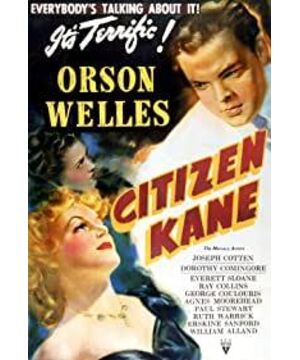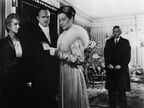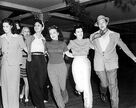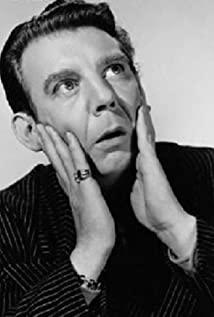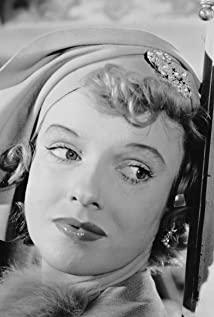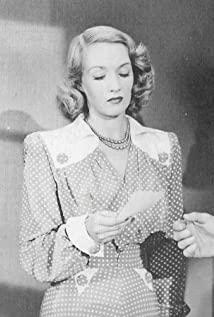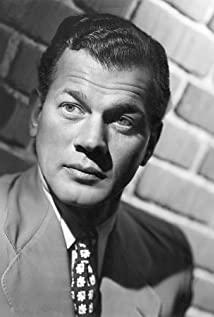Citizens and Emperors
——Analysis of Kane in Citizen Kane
Combined with the filming time of 1941, this film undoubtedly ushered in a new era of storytelling and shooting techniques in the history of cinema. A reporter wanted to explore the secrets of "rosebud", and made a biopic about Kane, a person with great influence in the United States. He started interviews with people around Kane during his lifetime, and gradually pieced together the complete picture of this person. face.
I think Citizen Kane is a great title, with a sense of pun and sarcasm. Kane is the epitome of the American bourgeoisie. As an "American citizen", he enjoys the benefits of "democratic politics", actively making money, having connections, gaining a seat and the right to speak, and trying to participate in politics because he has a strong desire to rule and control by nature. Desire, and finally fell into the quagmire of power and desire, self-expansion, unable to extricate themselves. Whether this capitalist society will bring good news to the development of the United States and people's lives, or will it be a severe disaster, like a major crisis in the capitalist economy. At the beginning of the film, it conflicts with the title of the film. It is very ironic to use the tombs of the pharaohs and the capital of the Yuan Dynasty with strong feudal despotism to depict the ruins of Kane, a "good citizen of the United States". In other words, Kane's single-handedly created gains and losses, ups and downs, and when he died, he was just an ordinary citizen.
The plot of the film unfolds in a very clever way. A line unfolds, which leads to a fragmented story, which is more conducive to the construction of this confusing round character. Everyone has different evaluations of Kane. Just like the beginning of the film, some people say that he is a fascist, and some people think that he is a savior. Every point of view must have his supporting point. But after I saw Susan's interview, I had a negative evaluation of Kane. Even when Li Lan said that he was selfish, I defended Kane in my heart. It may be that Susan, who is the last, uninterested, and intimate person in his life, can most convincingly reflect Kane's degeneration and transformation. The director may deliberately leave it to the end.
The editing method of the film is very characteristic. The transitions are almost all fading in and out, and the key things stay for a long time. As far as this unique special method is concerned, there is a more hazy and confusing feeling, just like Kane's life and Kane's image characteristics. It's really amazing to be able to edit this by hand in the film era. Susan and Kane met for the first time and showed pure love for singing. Later, Kane forced her to perform. When she was on stage, all kinds of short and urgent clips perfectly showed Susan's spiritual world. The collapse created a sense of depression, and also perfectly reflected Kane's selfishness, dictatorship, and perversion, with a particularly strong sense of performance.
The film's use of the camera lens is in place, explaining Kane's big lonely castle, giving the big vision, and clearly portraying the audience that Kane is a dictatorship, inaccessible, eerie, and even an imprisoned pervert. Inside the castle, there are so many sculptures without the main lens, which are very rigid and lifeless, showing that Kane does not really love art. He loves collecting, and wants to improve his image and expand his circle of friends, reflecting his vanity, inferiority, and possession. Strong desire, related to his childhood experience, gradually lost himself. In this section, when Susan talks to Kane, she almost hits back and forth, upside down, downside down, no longer love, equality and respect, but command and obedience. As Susan said, it was Kane who asked her to love him. It also reflects Kane's degeneration from integrity and assertiveness to closed, selfish, autocratic and arrogant.
When Kane sent him away from his mother, his life began to struggle with gains and losses. He gained wealth and resources, but he could never find the care and warmth of his family. Kane's character can be said to be flawed in the first half of his life, such as lack of trust and stubbornness, but he is still a positive character. Later, he really magnified his shortcomings and became a great dictator. For the viewers, the most important thing in the whole film is Kane's reflections on gains and losses and choices revealed by his life experience. Even thinking about the hidden drawbacks of a seemingly perfect society, we must weigh it and look at it instead of exploring "rosebud" along the story line. After watching the film, I actually felt a sense of powerlessness. Although Kane was overconfident, he also believed in justice, firmly believed in the social system, and did not compromise like evil forces, but it caused the decay of his life.
Attachment: The two parts before and after the film, in terms of lines, shots, light, sound, and many other aspects, form a strong contrast in many details, which has caused a great change in the atmosphere, and the portrayal of Kane's characters has changed a lot. But it also caused me a lot of doubts. For example, why did Kane marry Susan, because he was clinging to his own opinion, arrogant, and already fell in love with Susan, regardless of the consequences? Does he really love Susan? Does it also reveal some problems in American capitalist society?
View more about Citizen Kane reviews


